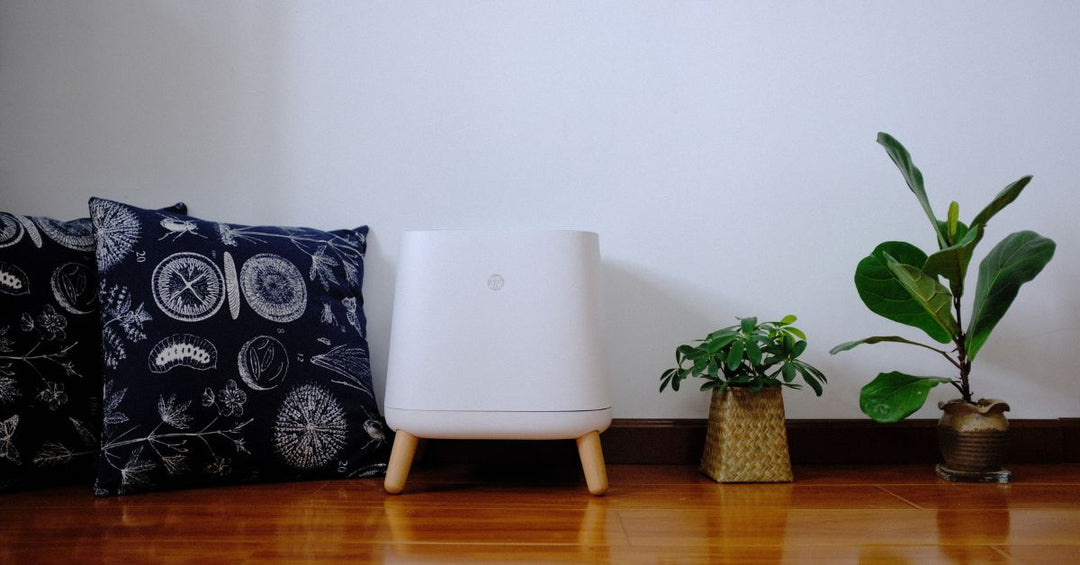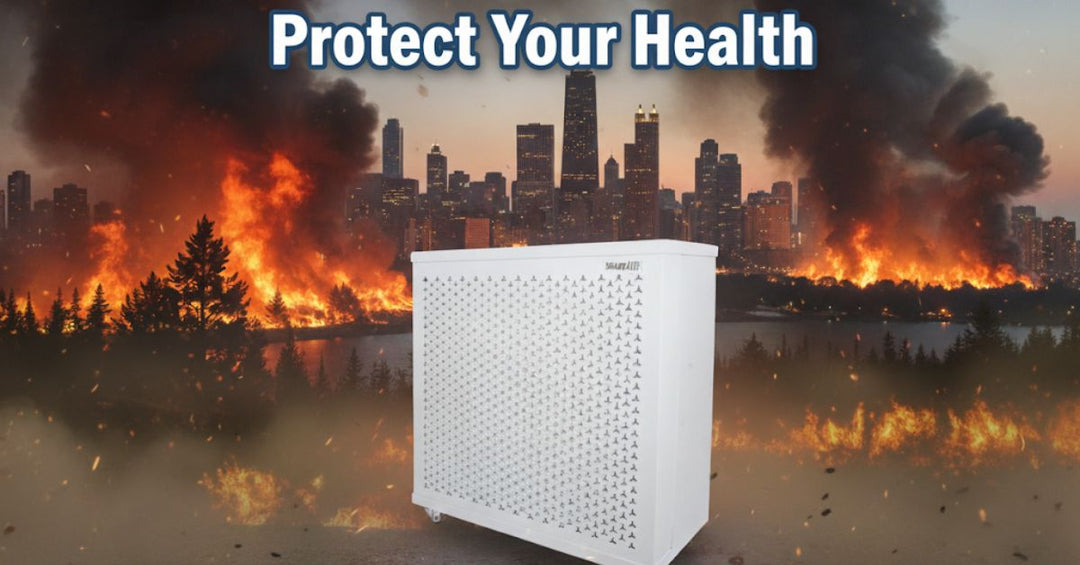Do Air Purifiers Help Relieve Seasonal Allergies?
Allergens like dust mites, pollen, and pet dander can float around your home for months, and your only clue that they are present is your constant wheezing, sneezing, and sniffling. Can an air purifier help relieve your seasonal allergies?
The answer depends on the type of air purifier you’re using. A purifier fitted with a HEPA filter, for example, can greatly reduce the number of allergenic particles in the air.
How Do HEPA Filters Work?
An air purifier fitted with an H13 HEPA filter removes at least 99.97 percent of particles from your indoor air. It works by filtering the air through a mat of randomly arranged fibers designed to capture those particles. HEPA filters are tested at 0.3 microns because it is the most difficult particulate size to capture. Particles that are both larger and smaller than 0.3 microns are captured at an even higher rate.
Many allergens that float through your home’s air, like pollen and mold spores, can easily be caught in the fibers of a HEPA filter. The more frequently you filter the air in your room—often called air changes per hour (ACH)—the fewer allergens you will be breathing. Using a HEPA room purifier can lessen the severity of your symptoms by removing virtually all of the airborne allergy triggers.
HEPA vs. True HEPA
The US Department of Energy has implemented a standard for HEPA filters, calling a True HEPA filter one that has an H13 rating. These are often called Medical Grade HEPA filters, although that is essentially a marketing term. A rating of H13 refers to a 99.97 percent efficiency at capturing particles that are 0.3 microns in size.
However, that’s not to discount the effectiveness of lower-rated HEPA filters. A HEPA filter with an H12 rating will remove 99.5 percent of particulates from the air—only 0.47 percent less than an H13 HEPA. The H12 HEPA filter typically filters air more quickly, which more than makes up for the slight difference in efficiency.
Marketing Gimmicks To Watch For
As you shop for home air purifiers, you’ll probably see some marketed as allergy-reducing, with claims that their ionization and UV light features help clean the air. While studies show that they do reduce the number of particulates in the air, they also bring drawbacks of their own.
Ionizers emit ozone, and long-term ozone exposure can cause congestion, headaches, and shortness of breath. Meanwhile, UV lights are ineffective at cleaning air if it’s constantly moving through the purifier—they need sustained, close exposure to work properly.
Does a HEPA Filter Help?
Ultimately, an air purifier fitted with a HEPA filter can help relieve your allergy symptoms by reducing the allergens in the air. However, room purifiers are best used in conjunction with regular house cleaning and allergy medications prescribed by a doctor.
Will an air purifier help relieve your seasonal allergies? If it’s fitted with a HEPA filter that removes more than 99 percent of particulates from the air, it can certainly help. As long as you change the filter regularly, a HEPA purifier can help boost your health.
A HEPA air purifier that filters the volume of air in your home at least every 30 minutes, or more preferably, four to five times per hour, will greatly reduce your exposure to allergens and, thus, your allergy symptoms. For best results, be sure that HEPA filters are also being used at your office or other locations where you spend significant time.




